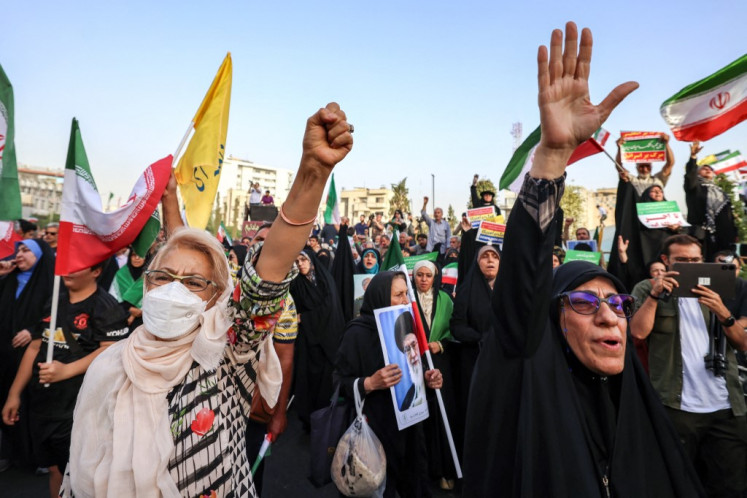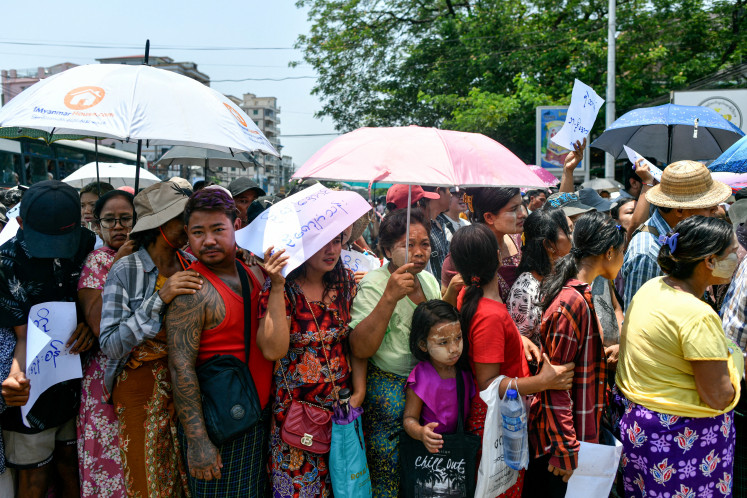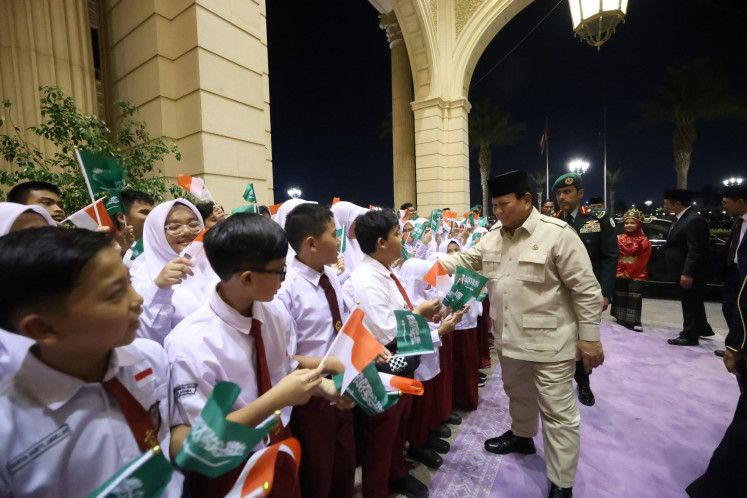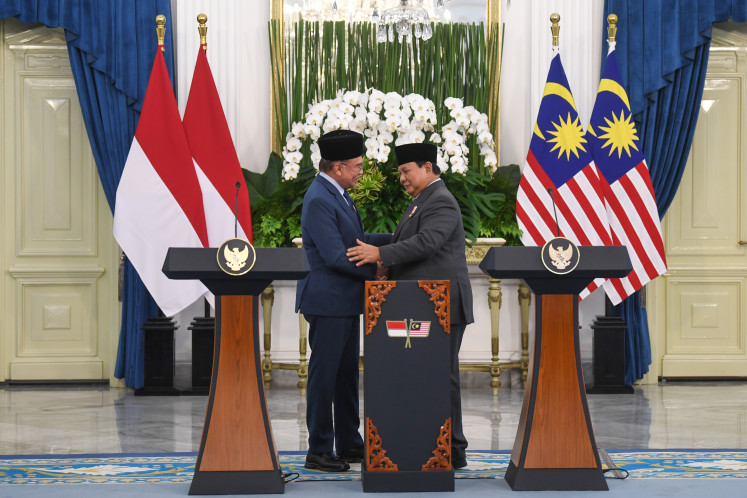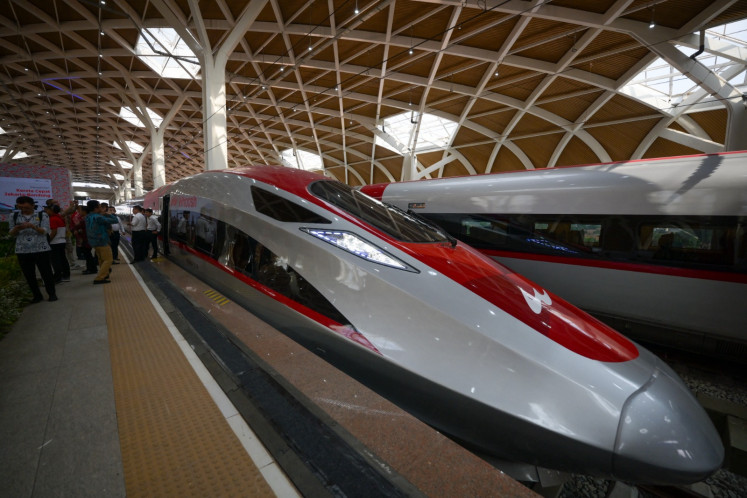Popular Reads
Top Results
Can't find what you're looking for?
View all search resultsPopular Reads
Top Results
Can't find what you're looking for?
View all search resultsHarmonizing the Islamic and circular economies
Islamic economic principles work hand in hand with the concept of the circular economy, and taking a holistic approach by also integrating Islamic finance can lead to sustainability through economic, social and environmental benefits.
Change text size
Gift Premium Articles
to Anyone
 A person holds up imported food products with halal certification against the halal logo in this illustration created on March 14, 2022. (Antara)
A person holds up imported food products with halal certification against the halal logo in this illustration created on March 14, 2022. (Antara)
D
evelopment of the Islamic economy remains a committed agenda under Indonesia's new president in 2024, showing continuous achievements. Government efforts and collaboration with relevant institutions have successfully positioned the country as the third-strongest Islamic economic ecosystem globally, after Malaysia and Saudi Arabia.
However, beyond international rankings, it is worth asking: Have the values of sustainability, social responsibility and prudent resource management – the core principles of the Islamic economy – been felt across all segments of society?
Currently, there is no clear indicator that comprehensively measures the integration of the Islamic economic and financial system in Indonesia. As a result, international rankings have become the primary benchmark for achievements of the Islamic economy, which should not be the main priority. If the focus remains on competing for higher rankings, Islamic economic development risks becoming a race against other countries, sidelining the core values of the Islamic economy in strategic programs.
Developing the Islamic economy should prioritize embedding its values into society, moving beyond mere economic value creation toward a more holistic sustainability vision. This approach necessitates balancing the economic, social and environmental dimensions, which is achievable through integrating the circular economy with Islamic financial instruments. An Islamic economy that incorporates sustainability principles will generate economic benefits while fostering social inclusion and environmental preservation in the long run.
First, a strategic step toward integrating the circular economy and Islamic finance is the productive use of waqf (property endowment), specifically land. Waqf land can be developed into recycling facilities as part of sustainable waste management programs. For instance, organic waste can be processed into compost or renewable energy, while nonorganic waste like plastics can be recycled into high-value products. Additionally, waqf land can support clean water and sanitation facilities, enhancing public health and promoting sustainable rural development.
The concept of productive waqf can also support the establishment of circular economy research laboratories. These labs can serve as innovation hubs for environmentally friendly technologies, creating advancements in waste management, renewable energy and sustainable product development. Supported by Islamic philanthropic institutions and the government, this development can be a model for innovative and sustainable waqf management.
Secondly, the renewable energy sector offers vast potential for circular economy implementation through Islamic finance. Islamic financial institutions can play a crucial role by financing renewable energy projects through ijarah (leasing) schemes for technologies like solar panels, biogas power plants and wind turbines. This approach enables energy companies to lease, rather than purchase, the technology outright, reducing their initial financial burden.





